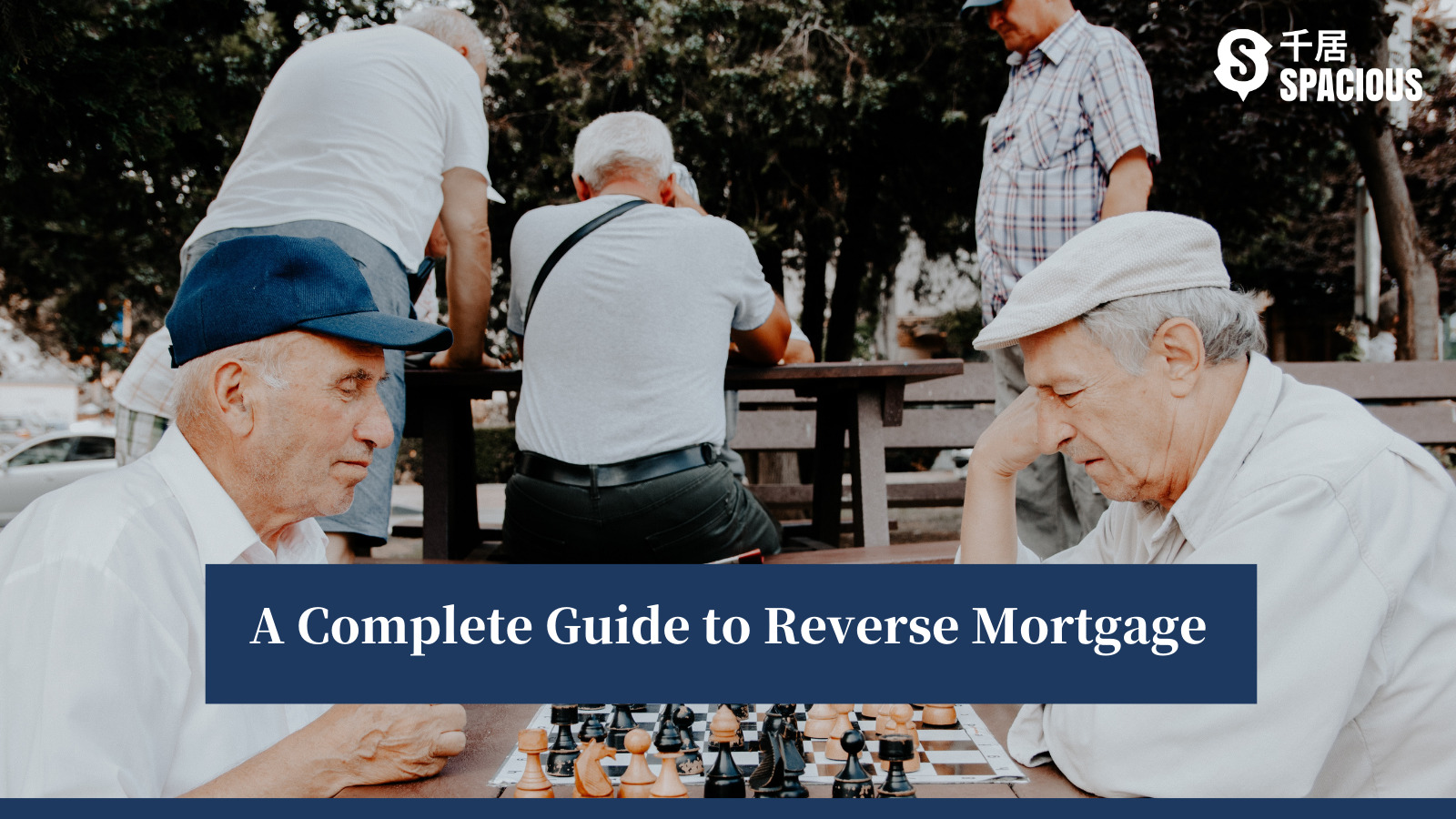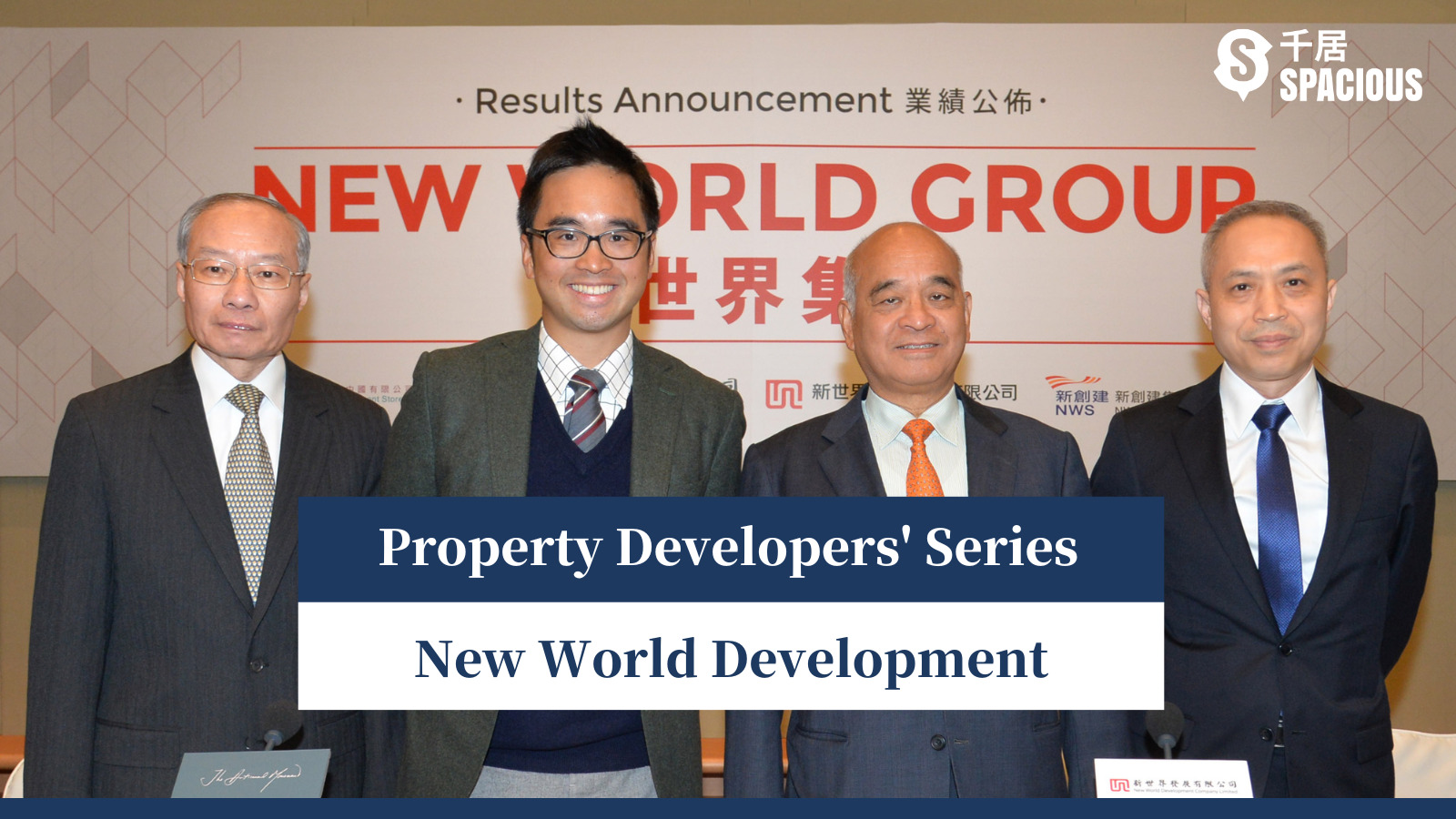
The reverse mortgage program has the merit of lifetime loan repayment exemption. What exactly is it about? Spacious has everything you need to know about reverse mortgage. Keep reading to find out the program’s eligibility requirements, loan-to-value ratio, loan tenure, annuity amount, disbursement and more.
Jump to: What is Reverse Mortgage | Eligibility | Annuity Value | Interest Rates | Associated Costs | Cooling-off Period | FAQ
Reverse Mortgage = Elderly Mortgage
Reverse mortgage, also known as elderly mortgage, is one type of mortgage services. The main difference between reverse mortgage and other traditional types is that the former allows borrowing against a property that has already been fully paid off.
In other words, the loan is obtained after acquiring the property, hence the term “reverse mortgage.” On the other hand, traditional mortgage involves borrowing money to purchase a property that has not been fully paid off.
Reverse mortgage is exclusively available to the senior citizens. They can use this mortgage option to pledge a portion or the entire residential property they own as collateral to borrow money for their retirement needs. The borrowers even have the option to choose not to repay the loan.
The reverse mortgage program is managed by the Hong Kong Mortgage Corporation Limited (HKMC). The same company also provides mortgage insurance plans required for high loan-to-value ratio mortgages.
However, the actual lending is still done by banks, and property owners can directly apply for the mortgage with banks.
Find or sell properties on Spacious
Eligibility for Reverse Mortgage
Reverse mortgage is not available to every homeowner like regular mortgages. The borrower must meet the following criteria:
Aged 55 or above
Applicable to private residential properties and subsidized housing with land premium paid. For subsidized housing without land premium paid, the property owner must be aged 60 or above.
Possession of a valid Hong Kong Identity Card
The borrower can be a permanent or non-permanent resident. There is no requirement to have resided in Hong Kong for 7 years; possessing a valid identity card is sufficient.
Property ownership under the borrower’s name
The residential property must be owned by the borrower individually. For jointly-owned properties, a maximum of 3 owners can apply together, and they must become co-borrowers.
Building age of 50 years or below
Properties with a building age exceeding 50 years can still be eligible, but the bank will consider individual circumstances and inspection reports.
Property cannot be rented if owned for less than one year or before retirement
If the property has been owned for less than a year, it can only be used for self-occupation or occupied by family and friends. Renting out the property is not allowed.
However, if the property is a private residential property owned for 1 year or more, and all borrowers have retired or need to move out for medical or caregiving reasons, applying to rent out the property is permitted.
Village houses must have no resale restrictions
Village houses with resale restrictions are not eligible for reverse mortgage. However, for subsidized housing without land premium paid, even if there are resale restrictions, applications can still be considered.
Find or sell properties on Spacious
Annuity Value
The table below shows the maximum annuity value of different property price ranges.
| Property Valuation | Maximum Annuity Value |
| HK$8M or below | 100% of property value |
| HK$8M above | For the first $8 million, 100% of value; For the remaining, 50% of value (capped at $25M) |
Interest Rates for Reverse Mortgage
The reverse mortgage program has the option of using either a floating or fixed rate to calculate the mortgage interest. The floating rate is approximately P – 2.5%, while the fixed rate is 4% for the first 4 years and then P – 2.5% thereafter.
Receiving the Loan Amount
In a typical mortgage, homeowners make monthly payments consisting of interest and gradually decreasing principal. However, the reverse mortgage works differently. The loan amount is disbursed in the form of an annuity.
The homeowners receive the annuity payment each month. The annuity payment, along with interest and insurance premiums, becomes the outstanding principal amount. Over time, the outstanding principal amount increases.
The homeowners can choose to receive the annuity payment over a period of 10, 15 or 20 years, or even for the entire lifetime. The specific amount of the annuity payment depends on the homeowner’s age and the chosen loan tenure.
Monthly Annuity Payment(per $1M worth of property value)
| Age: 55 | Age: 55 | Age: 55 | Age: 60 | Age: 60 | Age: 60 | Age: 70 | Age: 70 | Age: 70 | |
| 1 Person | 2 Persons | 3 Persons | 1 Person | 2 Persons | 3 Persons | 1 Person | 2 Persons | 3 Persons | |
| 10 Years | $3,200 | $2,800 | $2,500 | $3,700 | $3,300 | $3,000 | $5,100 | $4,600 | $4,200 |
| 15 Years | $2,400 | $2,150 | $1,900 | $2,800 | $2,500 | $2,250 | $3,800 | $3,500 | $3,200 |
| 20 Years | $2,050 | $1,800 | $1,600 | $2,400 | $2,100 | $1,900 | $3,300 | $3,000 | $2,700 |
| Lifetime | $1,650 | $1,450 | $1,250 | $2,000 | $1,800 | $1,550 | $3,100 | $2,800 | $2,400 |
With the fixed interest rate plan, the annuity payment can be approximately 10% higher compared to the floating interest rate plan.
Find or sell properties on Spacious
Costs Associated with Reverse Mortgage
Applying for reverse mortgage involves the following three types of fees: 1. Mortgage insurance premium; 2. Counselling fee; 3. Legal fee.
1. Mortgage Insurance Premium
It consists of two parts:
a) Basic Mortgage Insurance Premium
The basic mortgage insurance premium is 1.96% of the property value and is paid in seven instalments from the 4th to the 10th year.
Cost per installment = (1.96% / 7) of the property value = 0.28%
b) Monthly Mortgage Insurance Premium
Based on the outstanding balance of the Elderly Mortgage loan, it is calculated at an annual interest rate of 1.25% and paid monthly.
2. Counselling Fee
Before applying for reverse Mortgage, homeowners are required to schedule a meeting with a qualified counseling advisor.
The counseling advisor will provide detailed explanations of the product features, and upon completion, a counseling certificate will be issued to the homeowner. Homeowners need to pay the counseling fee, which can be included in the loan amount.
3. Legal Fee
Homeowners need to pay legal fees for signing the mortgage documents and other related legal documents. Similarly, homeowners have the option to include these fees in the loan amount.
4. Handling Fee (Optional)
Starting from the effective date of the reverse Mortgage, a handling fee of $1,000 is required for each successful application of the following procedures:
- Changing the loan tenure.
- Lump-sum loan withdrawal.
- Increasing the mortgage amount.
- Withdrawing the mortgage plan.
Similarly, the handling fee can be included in the loan amount.
5. Inspection Fee (Optional)
If the age of the property exceeds 50 years, the bank will require the homeowner to submit an inspection report, and the homeowner is responsible for paying the inspection fee. Once again, the inspection fee can be included in the loan amount.
Cooling-off Period for Reverse Mortgage
If a homeowner wishes to terminate the mortgage within 6 months, they can receive a full refund of the insurance premium. However, the loan still needs to be repaid, and the homeowner is required to pay the legal fees for terminating the reverse mortgage.
Although the reverse mortgage program uses the property as collateral, residents do not need to move out of their units. Qualified individuals can even rent out their units and comfortably receive the annuity payments at home.
While it may sound appealing, it is important to thoroughly understand the considerations of reverse mortgage before making a decision. If you are searching for a buy-to-let property across different neighbourhoods, go to Spacious to discover a wealth of properties listed for sale.
Find or sell properties on Spacious
FAQ
What are the consequences if a homeowner fails to repay the reverse mortgage annuity?
If a homeowner chooses not to repay the annuity, their successors are also not obligated to make the repayment. However, they will not be able to inherit the property either, as the bank will repossess it and sell it.
Is there any penalty for early repayment?
Homeowners can repay the reverse mortgage at any time without incurring any penalty interest. However, they can only repay the entire mortgage in full and cannot repay a partial portion of the loan in advance.









